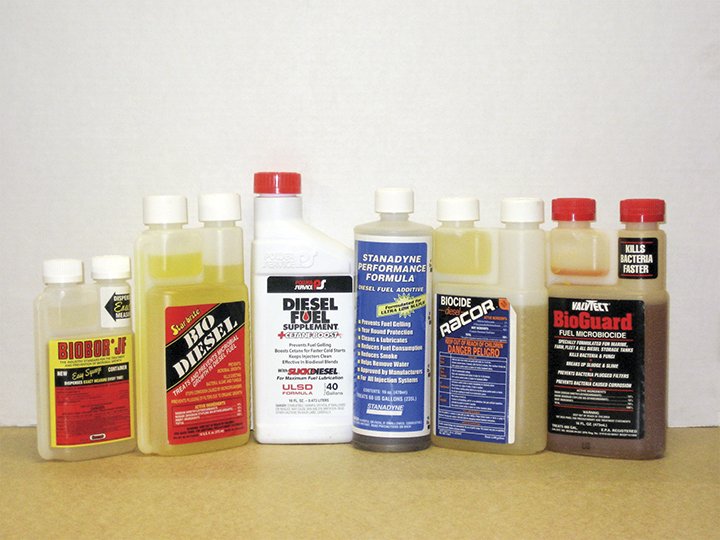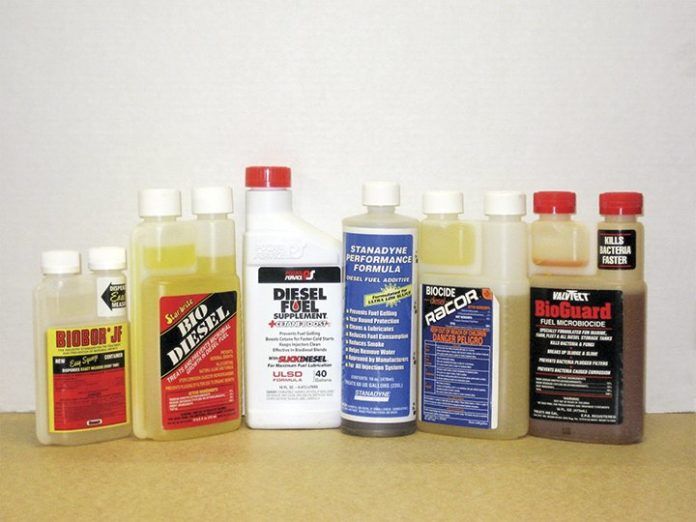
Murphy’s Law has an affinity for old marine diesel engines, particularly those with aging fuel systems. Problems with bad fuel is one of the chief complaints among owners of diesel engines, particularly among first-boat owners who are unfamiliar with some of the contamination issues associated with diesel fuel. In a previous report, we looked at various additives that claim to preserve stability in both gasoline and diesel fuel during long-term storage. The article was the most recent in an extensive series of reports we’ve done on fuel system design and maintenance.
Fuel system maintenance doesn’t stop during the sailing season. Although pre-filters used at the fuel dock, tank vent filters, and diesel fuel additives can reduce the risk of contamination during the sailing season, don’t expect these to solve all your fuel-system problems. These are only ancillaries to regular fuel system-management and maintenance, improving reliability even further.
Here are some fuel-system management practices that we recommend.
- Buy diesel from the busiest fuel dock. Often this is a fuel dock that serves commercial users. A busy service station is good, too.
- Eliminate outside free water. Inspect the tank-fill opening annually, and replace the O-ring as needed. A little o-ring lubricant can help with sealing and can prevent seizing. To keep water from splashing in the vent or from being forced in by a following wave, install a high loop in the vent hose, at least 12 inches above the tank, and consider a P-trap, if the function is questionable.
- Keep the tank full. This is vital with gasoline tanks, but its also important with diesel. Tank breathing is proportional to the free space in the tank, and a tank that is kept 90-percent full simply can’t absorb significant water through breathing. Some like to keep only the minimum amount of fuel in the tank, with the false belief that they can keep the fuel fresh in this way; however, this practice dramatically increases both humidity and oxygen exposure.
- A diesel fuel-polishing system designed to recycle and filter the oil is a good idea. There always will be some sludge in tanks, and often, there will be some biological growth. Frequent filtering wont stop these things, but regular maintenance with a fuel polishing system keeps them manageable and reduce surprises. Most of the bacterial and fungal spores will be removed along with bacterial debris, reducing growth.
- Some believe in continuous biocide treatments. Some rely on dry fuel and filtration. If you do chose biocides choose one of our recommended products, and don’t wait until things are bad; treat at the first sign, when there is any slimy dirt on the primary fuel filter.
- Effective filtration. This is applicable to both gasoline and diesel systems. High quality fuel/water separators and high-capacity filters deliver valuable protection should you get a bad batch of fuel or when rough weather stirs something up.
- Use your engine. Many sailors pride themselves on running the engine just enough to clear the marina. The problem is that the engine never really warms up, so only a fraction of a gallon is used each trip, and the fuel stays in the tanks for a year or longer. Neither gasoline nor diesel is formulated for that sort of long-term storage. Except for long-distance cruisers, most sailboat engines die from disuse, not wear.
Our complete report on Marine Fuel Additives explores this topic in greater detail











